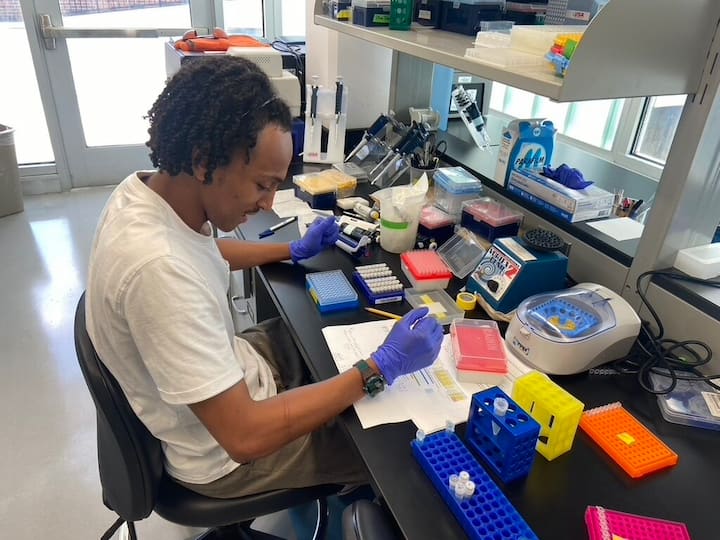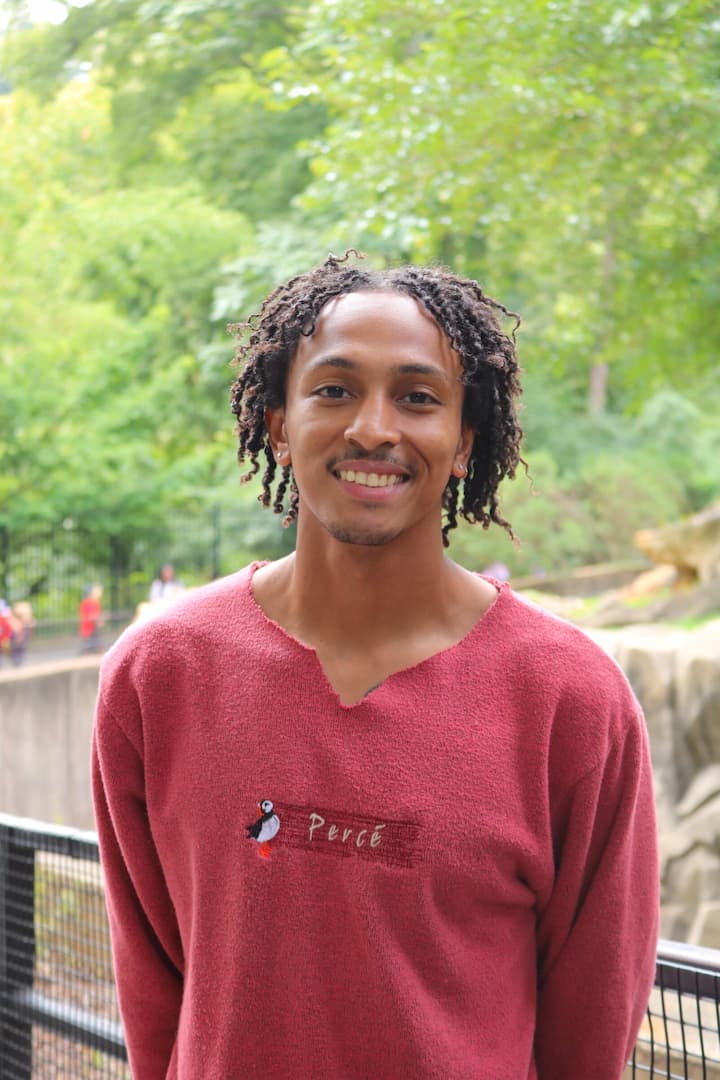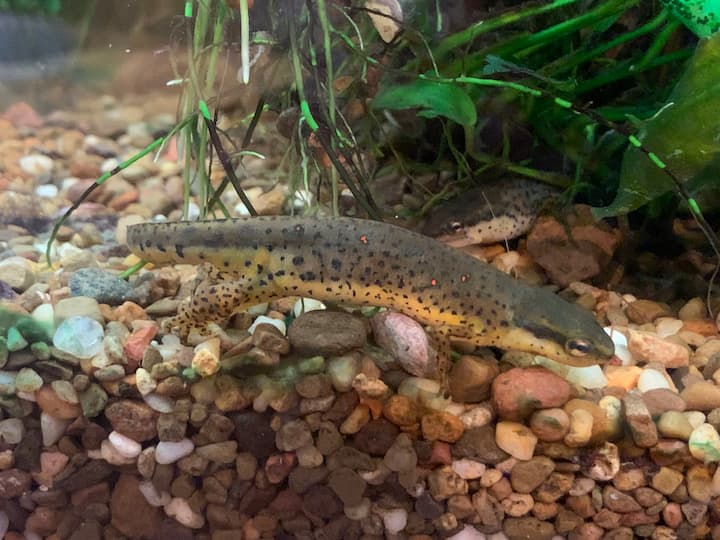For Julian Urrutia-Carter, Grad School Leads to New Start, Biotech Career
 Julian Urrutia-Carter graduated from college with a BS in respiratory therapy in 2020 and soon found a job as a therapist in Washington, DC. He had excellent job security, but he knew that something was missing.
Julian Urrutia-Carter graduated from college with a BS in respiratory therapy in 2020 and soon found a job as a therapist in Washington, DC. He had excellent job security, but he knew that something was missing.
“After two years, the work was monotonous, and there weren't many opportunities for career growth,” he says. “I decided I wanted to go back to pursue cancer research or some human health-related research. I also wanted to stay local, so a degree in Biotechnology at American University seemed like a perfect fit for me.”
Urrutia-Carter enrolled in AU’s MS in Biotechnology program in 2022, and since then he has taken advantage of every opportunity to excel. In addition to his graduate classwork, he served as a teaching assistant in AU’s General Biology lab, as a graduate ambassador, and as the president and publicity chair of the College of Arts and Sciences Graduate Student Council. He made close connections with faculty members and peers, and he gained confidence in his abilities as a scientist.

“STEM is inclusive. I've learned that science is for everyone,” he says. “AU gave me the confidence to pursue new scientific fields, especially those where I didn't feel (or wasn't told) I could be successful.”
Professional Support and Development
Urrutia-Carter took the initiative to get to know AU faculty as mentors. When he wanted to explore internship and career opportunities, he reached out to Professor Meg Bentley, AU’s director of STEM Partnerships and Innovation. Also, while he was teaching Bio-210 labs, Urrutia-Carter built professional relationships with Professorial Lecturer Rebecca Hazen and Professorial Lecturer and Director of Biology Laboratories Holly Swanson. "They taught me how to run each lab and gave me great advice for my academic and career goals. Dr. Hazen helped me get my foot in the door with the National Zoo and Conservation Biology Institute (NZCBI).”
“Almost coincidentally, there were grants recently made available to hire interns at NZCBI,” he explains. “I had just completed a bioinformatics course and a computational genomics course, so I had some experience. While I started at AU with a human health focus, my interests started to sway toward understanding the genetic history of non-model organisms, so the genomics lab at the zoo was a perfect fit for me. Eventually, this led to my new position as a research fellow, which begins this month.”
Hazen says Urrutia-Carter's research fellow position is well deserved. “Julian is one of the sharpest and most creative thinkers I’ve had the opportunity to work with at AU. He is a charismatic and natural leader in his classrooms, and a super reliable and inventive teaching colleague. I am honored to have played a small role in helping him find his career path and can’t wait to see where he goes from here!”
Amphibian Disease Research
 Native Appalachian salamanders
Native Appalachian salamanders
Last summer, Urrutia-Carter’s main project at the genomics lab was to identify and classify antimicrobial peptides (AMPs) from three native Appalachian salamanders. AMPs are prevalent in nearly all organisms, and in amphibians, they serve as the "first line of defense" against foreign pathogens. “However, AMPS are not well characterized in salamanders,” Urrutia-Carter explains. “Using a fairly unique approach, we identified around 150 unique peptide sequences from our three species. My next project will be testing some of these peptides against the fungal pathogen Batrachochytrium dendrobatidis (Bd). A few of these peptides are simultaneously being tested against human pathogens at a different lab. These findings will help advance conservation efforts aimed at reducing disease impacts, while also uncovering AMP/microbiota dynamics.”
This work also led to his current position as a research fellow at NZCBI, where he will study frog microbiome dynamics throughout a Bd infection. “Frog skin is packed with microorganisms and molecules that interact with each other,” he explains. “This is often referred to as the skin microbiome. In the face of disease, this microbiome environment can change, so we'll be looking for those changes (i.e., molecule synthesis, microbial communities, etc.) through skin swabs and mucous samples.”
Looking Forward
Urrutia-Carter finds his current research to be challenging and immensely rewarding. His next steps are very much a work in progress, he says. “I'm in no rush to go back to school, but I feel a lot more confident moving forward. I would like to stay in amphibian disease research, and I have made some good connections through AU and the NZCBI. I haven't started looking for advisors or programs yet! Maybe fall 2025.”
